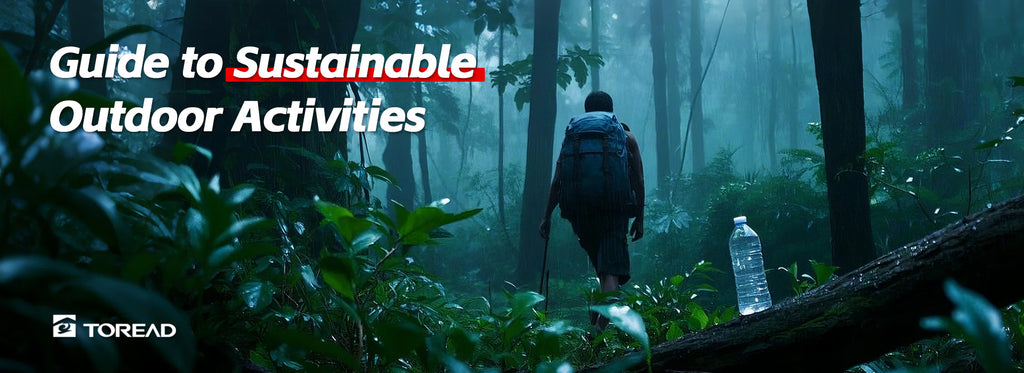

As outdoor activities gain popularity worldwide, minimizing environmental impact while enjoying nature has become a global priority. This guide integrates domestic and international practices to outline a sustainability framework—from planning to execution and feedback—to empower individuals and organizations in practicing eco-friendly exploration.
1. Strategic Planning and Preparation
-
Site Selection Based on Ecology
Choose locations with minimal ecological impact for your activity type. Prioritize existing infrastructure (e.g., trails, campsites) to avoid damaging untouched landscapes. For example, opt for established hiking routes in mountainous areas or regulated waterways for water sports.
- Reference China’s Guidelines for Sustainability Assessment of Large-Scale Events to evaluate ecological sensitivity and resource capacity before finalizing a site.
-
Eco-Friendly Procurement and Resource Management
-
Use gear made from sustainable materials, such as biodegradable tents or recycled fiber clothing, and reduce plastic usage.
-
Adopt a “zero-waste” approach: Purchase food in bulk to minimize packaging, prioritize locally sourced ingredients to cut transport emissions, and use reusable utensils and water bottles.
-
2. Resource Efficiency and Low-Carbon Practices
-
Energy and Water Management
-
Promote renewable energy: Solar-powered chargers, LED lighting, and portable wind turbines.
-
Conserve water: Use waterless sanitizers, collect rainwater for cleaning, and avoid contaminating natural water sources.
-
-
Reducing Carbon Footprints
-
Encourage carpooling, public transport, or cycling to event sites.
-
For large gatherings, implement carbon neutrality plans, such as tree planting or purchasing carbon credits to offset emissions.
-
3. Ecological Protection and Waste Management
-
“Leave No Trace” Principles
-
Pack out all trash, including food scraps and biodegradable items.
-
Provide labeled recycling and compost bins, with staff guiding participants on proper disposal.
-
-
Ecological Restoration and Compensation
-
Post-event assessments: Restore vegetation or repair soil if needed.
-
Support local conservation by donating a portion of proceeds to protected areas.
-
4. Education and Community Engagement
-
Raising Environmental Awareness
-
Integrate eco-education into activities: Host workshops on local ecosystems or wildlife conservation.
-
Gamify sustainability: Organize trash-sorting competitions or nature-themed scavenger hunts for younger participants.
-
-
Collaborating with Local Communities
-
Partner with residents: Hire locals as guides or staff to boost economic inclusivity.
-
Respect indigenous knowledge and traditions: Avoid disrupting cultural practices or sacred sites.
-
5. Policy Compliance and Standards
-
Aligning with National and Industry Standards
-
Follow Guidelines for Sustainability Assessment of Large-Scale Events (GB/T 44160-2024), ensuring metrics like waste-sorting rates and renewable energy usage are met.
-
Obtain approvals from environmental authorities for large-scale events to comply with regional regulations.
-
-
Leveraging Policy Incentives
-
Tap into government initiatives like China’s “High-Quality Outdoor Sports Destinations” program to secure funding for eco-friendly infrastructure (e.g., solar-powered stations, sustainable trails).
-
6. Continuous Improvement and Feedback
-
Data Tracking and Evaluation
-
Monitor energy use, waste generation, and participant satisfaction to refine future plans.
-
Engage third-party auditors to rate sustainability performance (e.g., “strong,” “moderate,” “weak”) and publish results transparently.
-
-
Participant Feedback and Innovation
-
Collect suggestions via surveys or focus groups. Encourage creative ideas, such as DIY upcycled gear designs.
-
Conclusion
Sustainable outdoor activities are not just about protecting nature—they reflect a commitment to balancing human enjoyment with ecological and cultural respect. From individual choices to organizational policies, every action contributes to a greener future. As emphasized in China’s Guidelines for Sustainability Assessment of Large-Scale Events, systematic and science-driven practices are key to fostering harmony between humanity and the natural world.













